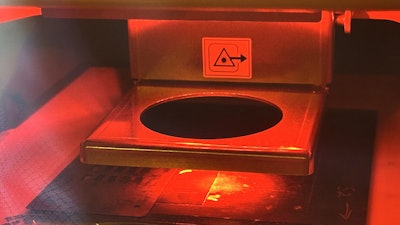
Promex Industries, Inc., a Silicon Valley-based provider of advanced design, packaging, and microelectronics assembly services, today announced it has expanded its manufacturing operations, adding advanced systems designed to support the medical device industry’s most demanding microelectronics applications. Its newly installed LPKF CuttingMaster 2127 ultraviolet (UV) laser depaneling and Koh Young aSPIre 3 automated solder paste inspection (SPI) systems bring enhanced flexibility and throughput to Promex’s advanced, best-in-class assembly process offerings.
The new systems enable continued high-level integration – from the chip/wafer level all the way to finished boards – on a wide variety of substrate materials.
“These investments reinforce our commitment to helping medtech OEM customers build more advanced, compact, and reliable electronic assemblies,” said Dave Fromm, chief operations officer, Promex. “Together, the new laser and SPI systems expand our core capabilities and allow us to deliver higher quality, yield, and consistency—from prototype to production—reflecting our commitment to not just meeting but staying ahead of industry and customer needs.”
UV laser depaneling
Laser depaneling delivers ultra-precise UV laser singulation, micromachining, and cutting for a wide range of organic and composite materials common in many medical microelectronics devices, especially those employing heterogeneous integration to co-package electronic and non-electronic components. Materials processed include polyimide and liquid crystal polymer (LCP) flexible circuit boards, FR4 circuit boards, organic/laminate substrates and interposers, and overmolded plastics/composites. With a <20 µm spot size and ±25 µm positional accuracy, the laser allows engineers to design boards with complex form factors and tighter layouts. This precision reduces up to 30 percent of dead space between components on the panel, maximizing design efficiency.
Enabling clean, stress-free singulation of flex and rigid-flex circuits is key to meeting customer demand for chip-on-flex and flexible packaging for medical devices. Offering this capability in-house allows Promex to improve turnaround times, enhance process control, and ensure consistent quality for critical applications.
“This laser cutting technology is imperative for OEMs with micromedical devices,” said Fromm. “It provides the cleanest cut through a variety of materials – including titanium, steels, glass, and sapphire – which is critical for device functionality and reliability.”
Inline SPI metrology
To meet the stringent demands of fine-pitch surface mount technology (SMT), Promex has also added inline SPI metrology capabilities. Designed to perform 100 percent inline metrology, the system inspects solder paste deposits at every location on every panel, across rigid and flexible substrates, capturing detailed statistical data and building paste libraries for each device design.
This data-driven approach delivers the highest standard in the True 3D SPI market, enhancing yield, enabling predictive quality control, and supporting tighter process windows essential to assembly of advanced components such as ball grid arrays (BGAs), chiplets, and high-density interconnects. These capabilities are especially critical for advanced medical device assembly on thin, flexible circuit boards, where solder printing cannot be assumed to be consistent across the print area (as it would be for traditional, rigid circuit boards).
According to Fromm, serialized boards used in this system can generate a record of the solder print quality for every component on every board, which reduces risk within the medical device manufacturing process. “There’s also the connection to flex itself – medical devices (often implantables) are pushing the limits for ultra-thin flex with small (down to 008004) part sizes at high part placement densities. Automated SPI is necessary to create a robust process assemble these devices and to ensure ongoing quality.”
The new tools are already in use at the Promex site. Combined with the company’s existing laser micromachining and advanced assembly capabilities, they position Promex to deliver fully integrated, high-quality solutions at scale.






















